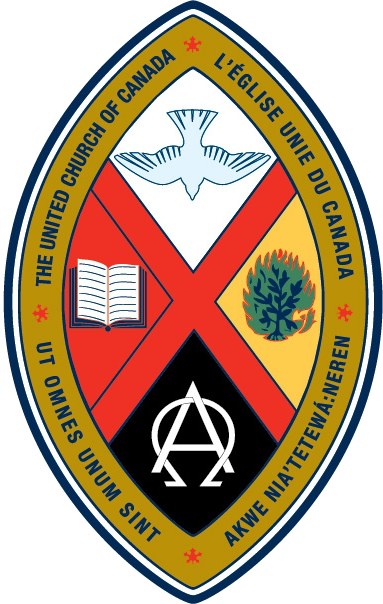 October 12, 2025
October 12, 2025
Thanksgiving Sunday
"A Time to Eat"
It’s hard to imagine a festival without food! Every culture does it. We know a day is special because we mark it with a feast – with friends, with family, and with food reserved for the occasion.
And in Canada at this time of year, even those of us who live in cities and seldom go anywhere near a farm can hardly escape the abundance of autumn produce: apples, pumpkins, squash, root vegetables, and all the bounty of the season that will carry us through the cold months to come. We stuff our turkeys and ourselves, and fill our tables with all that brings joy. It is, undoubtedly, a time to eat.
We humans have been celebrating festivals with food since time immemorial. “Thanksgiving” may be a North American holiday, but every culture has similar seasons for celebration. The story from Deuteronomy this week describes Middle Eastern harvest festival traditions that are thousands of years old. Our ancestors would bring the first fruits of their harvest to be blessed by the priests so that when they gathered at table, God too was in their midst. The author of the bounty was a guest at the party, and all would remember how their whole lives were nourished by grace.
The Israelite tradition at those kinds of feasts was to recall how they had been slaves in Egypt, and rescued from servitude by the God who hears the cries of those who suffer. It’s the founding story that echoes through all of Israel’s history: Because they were once slaves, they are now commanded to care for the lowest of the low among them. Because they were once rescued, they are now called to compassion for all still in servitude. Because they were founded in freedom from injustice, they are now expected to be beacons of justice for all who would otherwise lord it over others. Because but for the grace of God they would still be hopeless and pitiless, they are now expected to use their freedom to create a society where even the most hopeless and pitiless were treated with respect, with compassion, with generosity, and with fairness.
Thankfulness begets compassion. A society grounded in grace ensures that the widows and orphans, and all that they represent, have lives worth living.
What foods will grace your family table this year? How will you mesh the Canadian traditions with the ones you have inherited from the culture that shaped you? How will you acknowledge, and celebrate, the ways that you personally have benefitted from “grace?” Or the ways that your people have found blessing unearned, and joy unlooked for?
And what kind of compassion will that call out of you? How will you respond to unfairness? Pain? Fear? Hopelessness? What does it mean for you – and for us as followers of Jesus together – to express our gratitude by being gracious; to express our thankfulness by acting justly; to live out our joy by bringing joy to others?
Thanksgiving is about more than food, friends and family. It’s an invitation to transform gratitude into action so that the grace we celebrate will touch the lives of all who live in bondage and struggle with fear.

 forest hill
forest hill